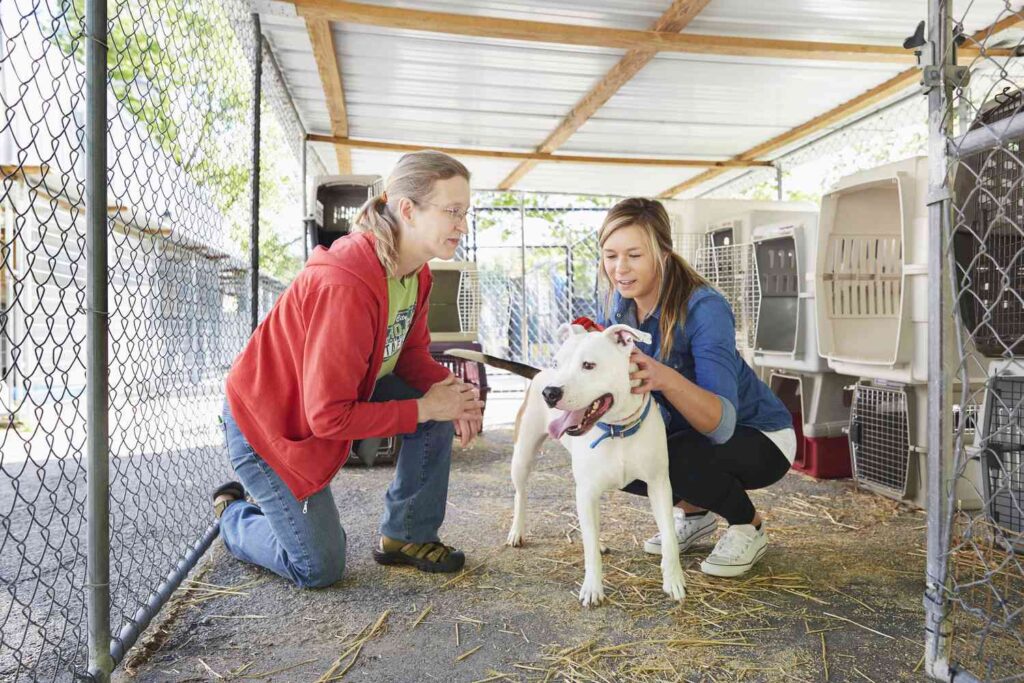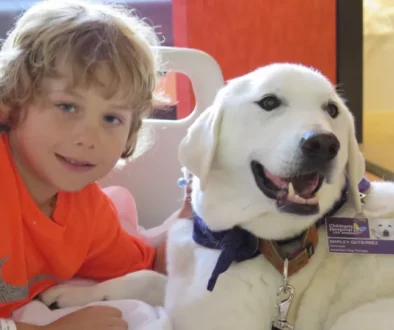Pet Adoption and the Environment: Sustainable Choices
The intersection of pet adoption and the environment is a critical topic. It highlights the positive impact individuals can have on both animal welfare and ecological conservation. In our quest for sustainability, we often overlook the impact our choices regarding pet ownership can have on the environment. Pet adoption is not only a fulfilling and compassionate choice but also a sustainable one. By adopting a pet instead of buying one from a breeder or a pet store, we contribute to reducing the detrimental effects of pet overpopulation and make a positive impact on the environment.
The Impact of Pet Overpopulation
Pet overpopulation is a significant issue that occurs when the number of pets (dogs, cats, and other animals) in a community exceeds the available resources and homes to provide for them. This surplus of pets can lead to a range of negative consequences for the environment.
Explaining the Issue of Pet Overpopulation
Pet overpopulation arises primarily due to uncontrolled breeding. Irresponsible pet owners, as well as the lack of spaying and neutering programs, contribute to the exponential growth of the pet population. Without effective management, such as limiting breeding or finding suitable homes for these animals, the population quickly exceeds the capacity to care for them adequately.
Environmental Consequences of Overpopulation
The environmental consequences of pet overpopulation are manifold. First and foremost, the strain on resources becomes evident. Each additional pet requires food, water, and other resources to survive. This increased demand for resources can put a strain on the environment, particularly when it comes to land use and agricultural practices.
Moreover, the waste produced by a large population of pets can have detrimental effects. The excessive amount of pet waste generated can contaminate water sources, pollute ecosystems, and contribute to the degradation of soil quality. Additionally, the energy and resources used to dispose of this waste further amplify the environmental impact.
The Role of Pet Adoption in Addressing Overpopulation
Pet adoption plays a crucial role in addressing the issue of pet overpopulation. By adopting a pet instead of buying one, individuals contribute to reducing the demand for pet breeding and puppy mills. Puppy mills, in particular, are known for their unethical breeding practices, leading to the overproduction of pets.
When people choose adoption, they provide homes for animals that may otherwise end up in shelters or on the streets. By giving these animals a second chance, pet owners assist in curbing the breeding cycle and reducing the number of stray animals. Adoption not only offers individual pets a loving home but also helps to alleviate the overall burden on the environment.

Benefits of Pet Adoption for the Environment
- Reduced Demand for Pet Breeding and Puppy Mills: By adopting a pet, individuals actively contribute to reducing the demand for pet breeding and puppy mills. These breeding facilities often prioritize profit over the well-being of the animals and commonly operate in unsustainable ways. Opting for adoption sends a message that buying from these establishments is not acceptable.
- Decreased Carbon Footprint Associated with Pet Adoption: Pet adoption also helps to decrease the carbon footprint associated with pet ownership. The breeding, transportation, and sale of pets involve significant energy consumption and carbon emissions. By adopting, individuals eliminate the need for these processes, thus reducing their environmental impact.
- Conservation of Natural Resources through Adoption: Adopting a pet means providing a home to an animal that might otherwise require additional resources if bred or purchased. This helps to conserve natural resources such as water, food, and land that would have been used to support more pets. By adopting, individuals contribute to a more sustainable use of these resources.
Choosing the Right Pet for Your Lifestyle
When considering pet adoption, it’s important to choose a pet that aligns with your lifestyle. Taking into account factors such as size, breed, and energy level can help ensure a positive and compatible match.
Considering the Size, Breed, and Energy Level of a Pet
Pets come in various sizes and breeds, each with its own unique characteristics and energy levels. Considering the space you have available in your home is crucial. For example, if you live in a small apartment, a large dog may not be the best fit. Similarly, if you have an active lifestyle and enjoy outdoor activities, a high-energy breed may be a great companion.
Assessing the Pet’s Compatibility with Your Living Situation
Beyond size and energy level, it’s important to assess the pet’s compatibility with your living situation. Factors such as allergies, noise tolerance, and the presence of other pets or children in the household should be considered. Some animals may require more attention and socialization, while others may be better suited for a quieter and more independent lifestyle.
Benefits of Adopting Older Pets and Mixed Breeds
When adopting a pet, it’s essential to consider the benefits of adopting older pets and mixed breeds. Older pets often have a more calm and predictable temperament, making them well-suited for households with a more relaxed pace. Additionally, mixed breeds tend to have fewer health issues compared to purebred animals, and they often exhibit a unique combination of traits from different breeds.

Sustainable Pet Care Tips
In addition to choosing the right pet, implementing sustainable pet care practices is important for minimizing the environmental impact of pet ownership.
Eco-Friendly Pet Products and Alternatives
There is a growing market for eco-friendly pet products that prioritize sustainability. Consider opting for biodegradable waste bags made from recycled materials or compostable alternatives. Instead of single-use plastic toys, choose durable and non-toxic options made from natural materials. Look for bedding and crates made from sustainable materials like bamboo or organic cotton.
Choosing Sustainable Pet Food Options
Sustainable pet care involves selecting environmentally friendly pet food options. Look for pet food brands that use sustainably sourced ingredients and have minimal packaging waste. Choose products that prioritize organic, locally sourced, and humanely raised ingredients. Additionally, consider buying in bulk to reduce packaging waste further.
Energy-Efficient Pet Care Practices
Reducing energy consumption is another aspect of sustainable pet care. Be conscious of the energy used for grooming, cleaning, and maintaining your pet’s living spaces. Use energy-efficient appliances, such as low-energy grooming tools and LED lighting. Wash and dry pet supplies using energy-saving settings or consider air-drying whenever possible.
By considering the size, breed, and energy level of a pet, assessing compatibility with your living situation, and adopting older pets or mixed breeds, you can ensure a harmonious match. Incorporating sustainable pet care practices through the use of eco-friendly products, choosing sustainable pet food options, and implementing energy-efficient practices, you can reduce your pet’s environmental impact while providing them with a loving and environmentally conscious home.
Supporting Animal Shelters and Rescue Organizations
Supporting animal shelters and rescue organizations is crucial for ensuring that they can continue their lifesaving work and make a difference in the lives of animals in need.
Importance of Financial Contributions to Shelters
Financial contributions play a vital role in supporting shelters and rescue organizations. These donations help cover the costs of veterinary care, food, shelter, and other necessary supplies for animals awaiting adoption. By making financial contributions, individuals can directly contribute to the welfare and well-being of animals in these organizations.
Volunteering and Fostering Opportunities
Volunteering at animal shelters and offering to foster animals are other impactful ways to support these organizations. By volunteering, individuals can provide assistance with daily care activities, such as feeding, grooming, and exercising the animals. Fostering involves providing temporary homes for animals until they can be adopted permanently. This not only relieves overcrowding in shelters but also offers the animals a home environment where they can thrive and receive individualized attention.
Spreading Awareness about Pet Adoption
Spreading awareness about the benefits of pet adoption is essential in dispelling misconceptions and promoting the adoption of shelter animals. By sharing personal adoption stories, facts about pet overpopulation, and the environmental benefits of adoption, individuals can inspire others to consider adoption as a viable choice. Utilizing social media platforms, hosting adoption events, and collaborating with local shelters are just a few ways to raise awareness and encourage others to make sustainable choices.
The Emotional Rewards of Pet Adoption
In addition to the positive impact on the environment, pet adoption offers numerous emotional rewards for the adopter.
Building a Strong Bond with an Adopted Pet
Through pet adoption, individuals have the opportunity to build a deep and meaningful bond with their adopted pets. The process of providing a loving home to an animal in need can create a profound sense of connection and companionship. This bond becomes the foundation for a lifelong relationship filled with love, loyalty, and support.
The Joy of Rescuing and Providing a Loving Home
The act of rescuing an animal from a shelter and providing them with a loving home is a powerful and fulfilling experience. Seeing the transformation of a once-abandoned or neglected animal into a happy and healthy companion brings immense joy and satisfaction. The knowledge that you have made a significant difference in their lives is truly rewarding.
Positive Impact on Mental Health and Well-being
Research shows that pet ownership, particularly through adoption, has positive effects on mental health and overall well-being. The presence of an animal companion can reduce stress, alleviate symptoms of anxiety and depression, and provide emotional support. Adopted pets often exhibit gratitude and loyalty, contributing to increased happiness and improved mental well-being for their owners.

Addressing Concerns and Misconceptions
It is important to address concerns and misconceptions surrounding pet adoption to encourage more individuals to consider this sustainable choice.
Quality and Behavior Issues in Adopted Pets
While some adopted pets may have quality or behavior issues due to their previous experiences, it is important to remember that with proper care, attention, and training, many of these issues can be resolved. Shelters and rescue organizations often provide support and guidance to adopters, ensuring a smooth transition and addressing any concerns that may arise.
Health and Genetic Concerns
Adopted pets may have certain health conditions or genetic predispositions, just like any other pet. However, reputable shelters and rescue organizations usually conduct health evaluations and provide necessary medical care before placing animals up for adoption. Adopters are also encouraged to seek veterinary care and regularly monitor their pet’s health to address any potential concerns.
Conclusion
In conclusion, supporting animal shelters and rescue organizations is vital for their continued operation. Pet adoption and the environment are intrinsically linked, as adopting a shelter animal provides a home for an animal in need and reduces the demand for pet breeding, which can contribute to overpopulation and environmental strain.
Financial contributions, volunteering, fostering, and spreading awareness about pet adoption are all impactful ways to make a difference. Pet adoption offers emotional rewards by building strong bonds, experiencing the joy of rescuing, and positively impacting mental health and well-being. Addressing concerns and misconceptions about adopted pets, such as quality and health issues, helps individuals make informed decisions and embrace the sustainable choice of pet adoption.
Also Read:
Pet Care Tips for Cats for Beginners
Pet Care Tips for Dogs for Beginners



